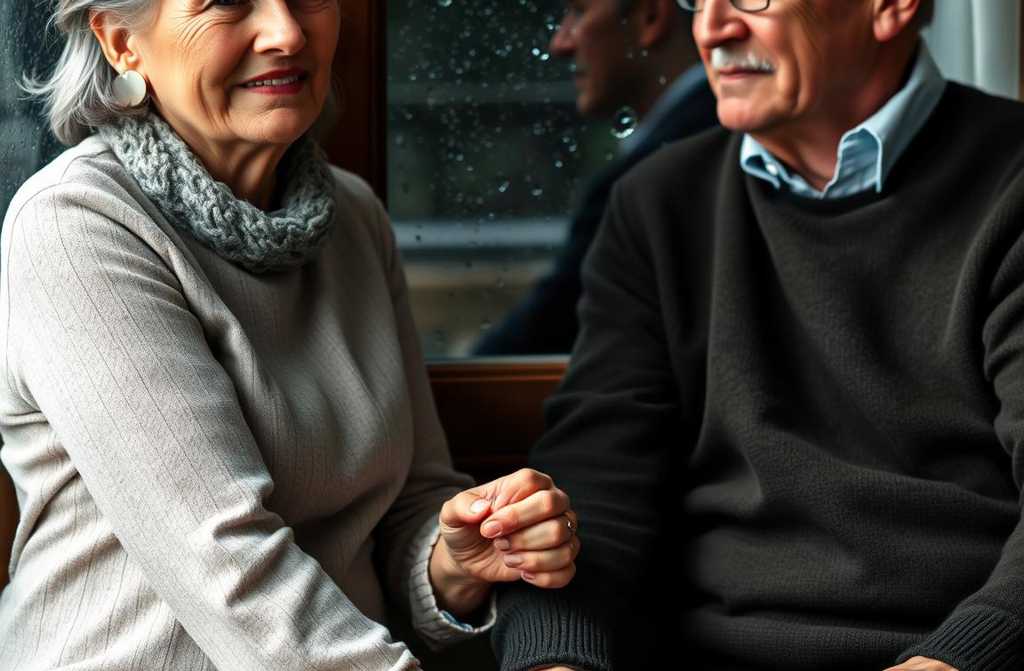З життя
At 65, We Realized Our Children No Longer Need Us. How to Accept It and Start Living for Ourselves?

At sixty-five, we realised our children no longer needed us. How does one accept this and begin living for oneself?
I am sixty-five now, and for the first time in my life, I face a bitter truthhave our children, for whom my husband and I sacrificed everything, cast us aside like old, unwanted things? Three children we raised, to whom we gave our youth, our strength, our last penniesthey took all we had to offer and walked away without so much as a backward glance. Our son wont answer when I call, and I catch myself wonderingwill any of them so much as hand us a glass of water when were too old to care for ourselves? The thought cuts like a knife, leaving only emptiness behind.
I married at twenty-five in a small town outside Manchester. My husband, Edward, had been my schoolmatea stubborn romantic whod spent years vying for my attention. He even enrolled in the same university just to stay near me. A year after our modest wedding, I fell pregnant. Our first daughter arrived, and Edward left his studies to work while I took a break from mine. Those were hard yearshe toiled on construction sites from dawn till dusk, and I learned to be a mother while scrambling not to fail my exams. Two years later, I was expecting again. I had to switch to part-time study, and Edward took on extra shifts just to keep food on the table.
We endured, despite everything, raising two childrenour eldest daughter, Margaret, and our son, William. When Margaret started school, I finally found work in my field. Life began to settle; Edward secured a stable job with decent pay, and we made our house a home. Just as we caught our breath, I discovered I was expecting a third. It was another blow. Edward worked harder than ever to keep us afloat, while I stayed home with our little Eleanor. How we managed, I still dont know, but step by step, we regained our footing. When Eleanor began school, I felt relief for the first timeas if a great weight had lifted.
Yet the trials did not end. Margaret, barely into university, announced she was marrying. We didnt protestwed wed young ourselves. The wedding, helping with her homeit drained our last savings. Then William wanted his own flat. How could we refuse our son? We took out a loan, bought him a place. Thankfully, he found work at a good firm quickly, and we breathed easier. Then Eleanor, in her final year of school, stunned us with dreams of studying abroad. It was a heavy blow to our purse, but we scraped the money together, clenched our teeth, and sent her across the sea. She flew away, and we were left alone in an empty house.
As the years passed, the children visited less and less. Margaret, though she lived nearby, came by twice a year at most, brushing off invitations. William sold his flat, bought another in London, and visited even more rarelyonce a year, if we were lucky. Eleanor, once her studies ended, stayed abroad to build her life there. We gave them everythingour time, our health, our dreamsand in the end, we meant nothing to them. We dont expect money or aidGod forbid. We only wish for a scrap of warmth: a call, a visit, a kind word. Yet even that is too much to ask. The phone stays silent, the door unopened, and the cold grip of loneliness tightens in my chest.
Now I sit by the window, watching the autumn rain, and wonderis this all there is? Have we, who gave our children every breath, been doomed to be forgotten? Perhaps its time to stop waiting for them to remember ustime to turn inward instead. At sixty-five, Edward and I stand at a crossroads. Ahead lies the unknown, yet somewhere beyond the horizon, a flicker of hope remainsnot for their happiness, but for ours. Weve spent our lives putting ourselves lastbut havent we earned just a drop of joy for ourselves? I want to believe we have. I want to learn to live again, just for the two of us, while our hearts still beat. How does one accept this emptiness and still find light within it? What do you think?

















